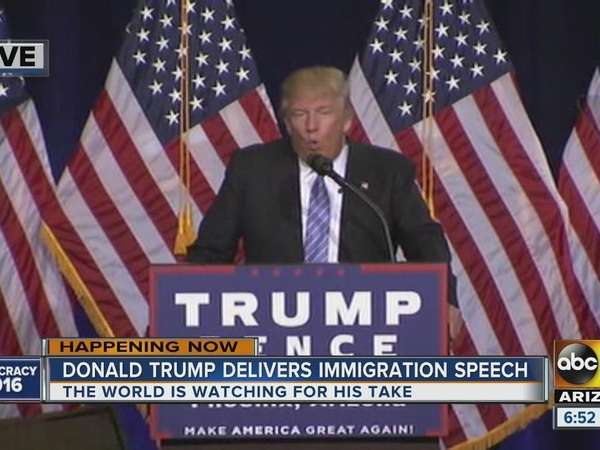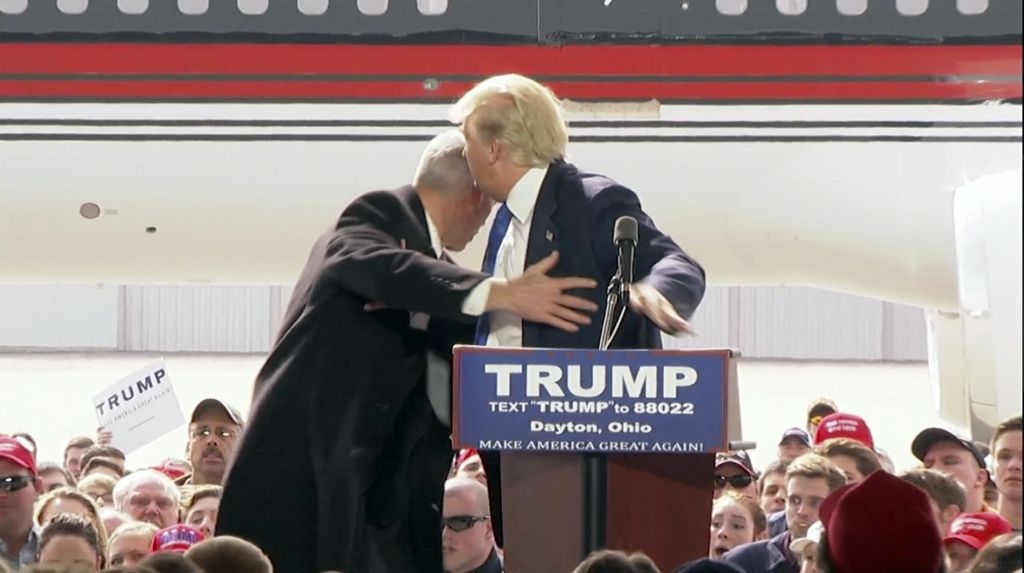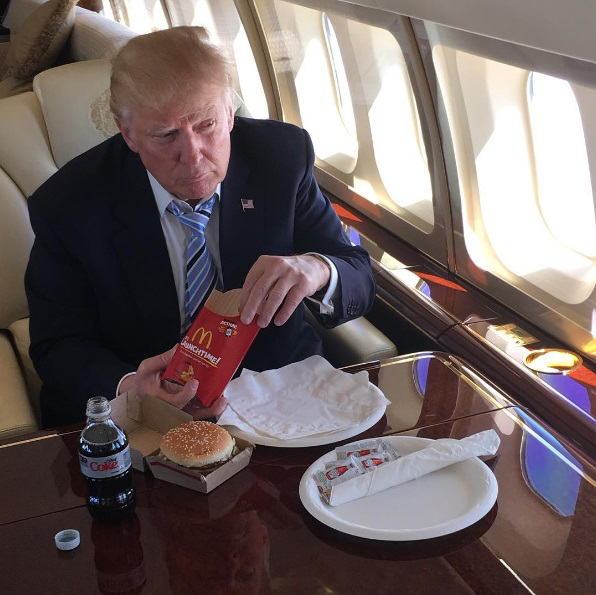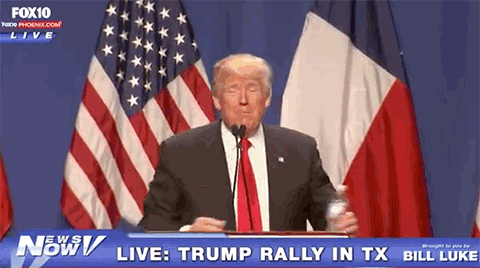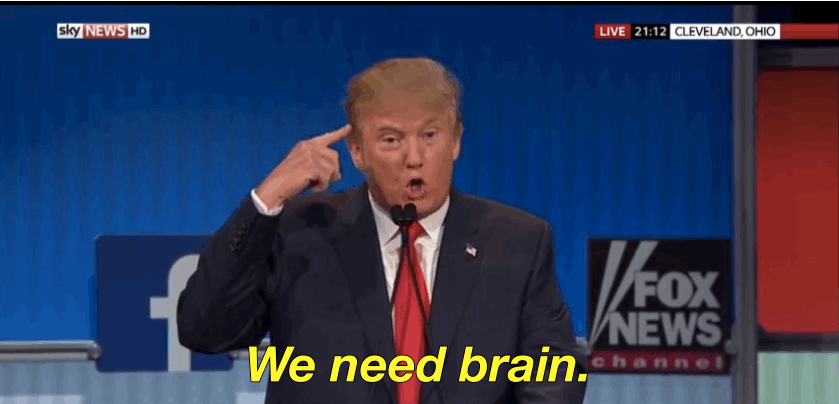Donald Trump, Father Coughlin reborn as Yucko the Clown, has in the past couple of weeks often tried to keep his Mussolini-esque tendencies under wraps, fitfully feigning concern for key minority voting blocs–the Birther as civil rights activist, President Arpaio as Mexican diplomat–before abruptly reverting to his rancidness as he did with his appalling immigration speech in Arizona.
Some in the media have already given in to judging Trump merely on how his depraved comments play in the polls. From T.A. Frank at Vanity Fair:
“So how did Trump’s speech, delivered at a Phoenix rally, really go? No one can yet say. Ultimately, the only relevant measurement is whether it moved his numbers up or down relative to those of his opponent…”
Yes, when it comes to the horse race, numbers are the only relevant measurement, and the horse race is of paramount importance. But just because winning by appealing to the sun-less side of the American eclipse is the only concern of Trump, that doesn’t mean his psychotic proclamations don’t mean anything on their own. They do. They’re despicable, and there’s utility in pointing that out independent of their efficacy or lack thereof.
The Phoenix speech was not received merrily within the Republican National Committee, which was already at odds with the campaign. Two excerpts follow about the continuous internecine war.
From Alexander Burns and Maggie Haberman at the New York Times:
The Republican National Committee had high hopes that Donald J. Trump would deliver a compassionate and measured speech about immigration on Wednesday, and prepared to lavish praise on the candidate on the party’s Twitter account.
So when Mr. Trump instead offered a fiery denunciation of migrant criminals and suggested deporting Hillary Clinton, Reince Priebus, the party chairman, signaled that aides should scrap the plan, and the committee made no statement at all.
The evening tore a painful new wound in Mr. Trump’s relationship with the Republican National Committee, imperiling his most important remaining political alliance.
Mr. Priebus and his organization have been steadfastly supportive of Mr. Trump, defending him in public and spending millions of dollars to aid him. But the collaboration between Mr. Trump’s campaign and Mr. Priebus’s committee has grown strained over the last month, according to six senior Republicans with detailed knowledge of both groups, some of whom asked to speak anonymously for fear of exacerbating tensions.•
From Alex Isenstadt at Politico:
Late last week, with Labor Day and the final stretch of the 2016 campaign approaching, Trump’s son-in-law, Jared Kushner, met with Republican National Committee brass — including chief of staff Katie Walsh and political director Chris Carr — in New York City. Kushner, who has in many respects assumed the role of campaign manager, asked a series of direct questions to the GOP officials — all surrounding the troubles the party was having in deploying field staffers, opening up swing-state headquarters, and establishing field offices in battlegrounds that will decide the election.
Those present for the meeting, and those briefed on it, insisted there were no fireworks, no drag-out fights. But they said Kushner’s questions reflected a growing realization within Trump’s team that for all the party’s talk about implementing a major swing-state deployment plan, it hasn’t yet materialized.
For weeks, Republican officials and operatives have groused about a dearth of campaign infrastructure in battlegrounds across the country — a state of affairs that could have an impact on GOP candidates up and down the ballot. But like many aspects of the Trump campaign, the deployment plan has been wracked by confusion, false starts and a lack of quick decision-making. On Aug. 18, Paul Manafort, Trump’s former campaign chairman, came to Trump’s Alexandria, Virginia, headquarters for a day of meetings. He left ready to finalize a series of decisions.
But the next morning, Manafort, under withering scrutiny surrounding his work overseas, abruptly quit. His departure created a chain reaction, delaying the talks for days on end.•

